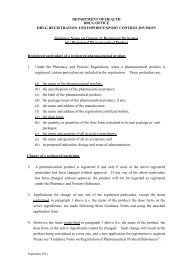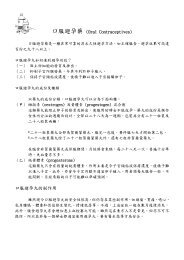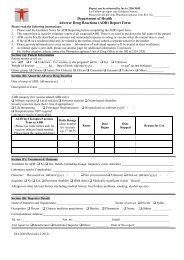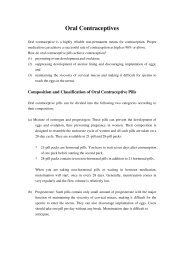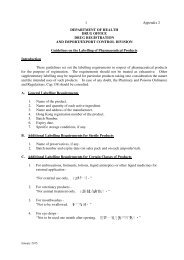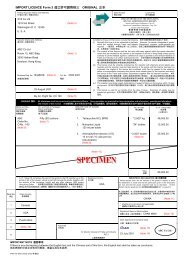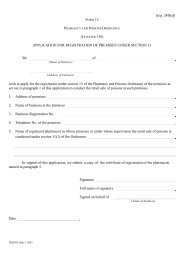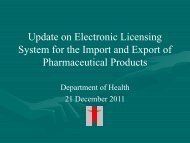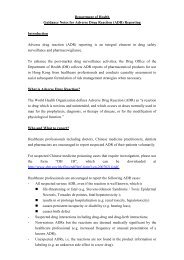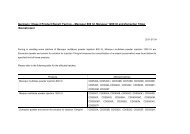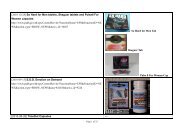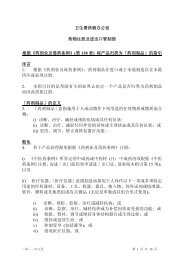Anti-inflammatory and Painkilling Drugs
Anti-inflammatory and Painkilling Drugs
Anti-inflammatory and Painkilling Drugs
You also want an ePaper? Increase the reach of your titles
YUMPU automatically turns print PDFs into web optimized ePapers that Google loves.
or even gastrorrhagia. They should be used only on doctor’s prescription <strong>and</strong> takenafter meals with antacids.Pregnant or breastfeeding women <strong>and</strong> patients suffering from peptic ulcer shouldnever take NSAID. In case of loose or black stool after medication or side effectsincluding severe headache, diarrhea, swollen eyes or skin rash, consult a doctor rightaway.Life AdaptationsPatients suffering from different kinds of rheumatic diseases need frequent medicationto ease their pain. Despite this, the best way to reduce the side effects of medicationis to avoid prolonged dependence. Patients should follow their doctor’s instructions<strong>and</strong> take medication only when necessary. They can try physiotherapy, physicalexercise or hydrotherapy. Analgesics for external application like wintergreenointment may also help. Staying happy <strong>and</strong> participation in social activities couldalso help lessen the dependence on anti-<strong>inflammatory</strong> <strong>and</strong> painkilling drugs.Storage of the <strong>Drugs</strong>The drugs should be kept in a cool <strong>and</strong> dry place. Generally, they do not need to berefrigerated unless otherwise stated in the drug labels. Also, they should be storedproperly to avoid accidents of mistaken consumption by children.



